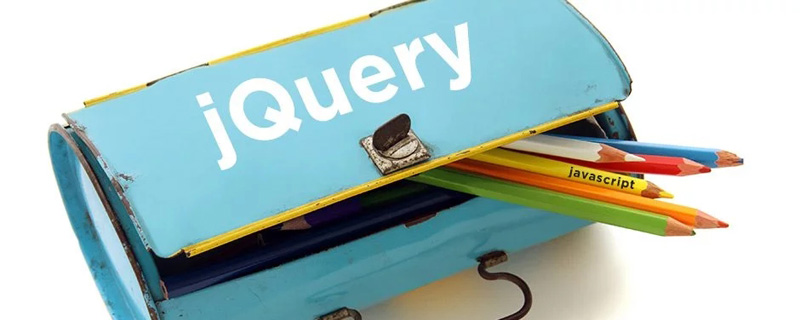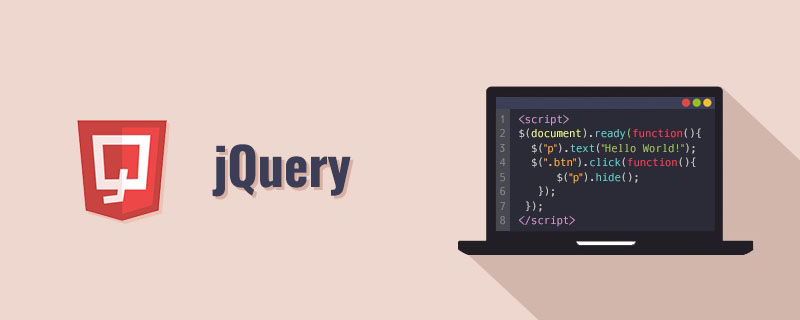 Web Front-end
Web Front-end JS Tutorial
JS Tutorial How to implement jQuery monitoring code scanner to prohibit manual input
How to implement jQuery monitoring code scanner to prohibit manual inputThis article mainly shares with you the code scanning gun monitoring based on jQuery. If you just want to monitor and obtain barcode scanning information, you can use it directly. If you have more barcode judgment and processing logic that you need to expand yourself, I hope it can help everyone.
1. Functional requirements
Use the barcode scanner to scan the barcode, monitor and obtain the data from the scanner on a web page, and prohibit the user from performing manual input operations.
The initial idea is very simple, because the code scanner simulates keyboard input. When it is plugged into the computer using the USB interface, it becomes an external input device, which can be monitored with js. But how to determine whether the user input manually requires some processing.
2. Main issues
1. How to judge whether to input manually
2. How to judge whether a barcode input is completed
3.Solution
The solution to manual input is to compare the time interval from pressing a key to lifting it, and the time interval between two key presses.
Because the input speed of the code scanner is very fast, the input interval of the code scanner I tested is about 15-60 milliseconds, and then the manual input is between 100-200, unless I deliberately want to break through the limit. Fast input. This interval value can be controlled to be very small, as long as it does not exceed the speed of scanning the code.
Judgement of input completion: You can monitor the changes in the input box. If the number of digits we want is reached, submit it to the server for processing; the second one is based on the code scanner, because the scanner I use The code gun can be configured to append a carriage return at the end if the code is successfully scanned. Therefore, based on the keycode of the carriage return, it can be judged that the input has ended, and then the value of the input box is obtained, and then subsequent processing (submission to the server, etc.) is performed.
4. Code
The judgment of the time interval depends on the three events of jQuery: keydown, keypress, keyup; that is, the key starts to be pressed, has been pressed, and pops up. , keydown means that the key has just been pressed, but the key value has not yet been written into the text box. Keypress has been pressed and the value has been entered into the text box, and keyup has popped up.
What needs to be judged is the time interval from pressing the button to lifting it, and the time interval between two keydowns.
The main manual input judgment code.
var barcode = {
listenerObj: null,
oneKeyTime : '', /* 一次按键时间间隔 */
twoKeyTime : '', /* 两次按键时间间隔 */
keyDownTime: '', /* 键按下的时间 */
barcodeLen : 8 , /* 条形码长度 */
spanTime : 70, /* 一次按键按下到释放的时间间隔 */
on_key_down : function (){
var that = this;
this.listenerObj.keydown(function(e){
if(e.which !== 13 && !(that.in_range(e.which))){
$(that.listenerObj).val('');
return ;
}
var d = new Date();
var curTime = parseInt(d.getTime());
if(that.keyDownTime !== '' && that.keyDownTime !== NaN){
that.twoKeyTime = curTime - that.keyDownTime;
}
that.keyDownTime = curTime;
});
},
on_key_up : function(){
var that = this;
this.listenerObj.keyup(function(e){
var d = new Date();
var keyUpTime = d.getTime();
that.oneKeyTime = parseInt(keyUpTime) - parseInt(that.keyDownTime);
var isHand = that.checkHandInput();
if(isHand && that.in_range(e.which)){
layer.msg('禁止手动输入');
$(that.listenerObj).val("");
}
})
},
on_key_press : function(){
var that = this;
this.listenerObj.keypress(function(e){
if(e.which == 13 && that.check_barcode()){
that.createListEl();
}
});
},
checkHandInput : function(){
if((this.oneKeyTime > this.spanTime) || this.twoKeyTime > this.spanTime){
return true;
}else{
return false;
}
},
}
I organized the code and put it on Github.
The prompts in my js code use layer.js, so if you use it, follow the example in index.html and introduce the relevant js:
<input>
$("#barCode").startListen({
barcodeLen : 10,
letter : true,
number : true,
show : function(code){
layer.msg(code);
}
});
Configurable parameters here: including barcodes The length, whether it contains English letters, and whether it contains numbers. And a show callback method, this method will be called when the code is scanned successfully and the barcode is legal, and returns the value of the barcode in order to perform customized operations, such as uploading to the server.
The code has a stay focus on the input box of the page, so other input requirements on the page cannot be realized, and the call to keepFocusInput can be removed.
Related recommendations:
Use jQuery to monitor DOM element size changes
jquery monitors changes in div content Specific implementation ideas_ jquery
jQuery method of monitoring text box events and processing accordingly_jquery
The above is the detailed content of How to implement jQuery monitoring code scanner to prohibit manual input. For more information, please follow other related articles on the PHP Chinese website!
 jquery实现多少秒后隐藏图片Apr 20, 2022 pm 05:33 PM
jquery实现多少秒后隐藏图片Apr 20, 2022 pm 05:33 PM实现方法:1、用“$("img").delay(毫秒数).fadeOut()”语句,delay()设置延迟秒数;2、用“setTimeout(function(){ $("img").hide(); },毫秒值);”语句,通过定时器来延迟。
 axios与jquery的区别是什么Apr 20, 2022 pm 06:18 PM
axios与jquery的区别是什么Apr 20, 2022 pm 06:18 PM区别:1、axios是一个异步请求框架,用于封装底层的XMLHttpRequest,而jquery是一个JavaScript库,只是顺便封装了dom操作;2、axios是基于承诺对象的,可以用承诺对象中的方法,而jquery不基于承诺对象。
 jquery怎么修改min-height样式Apr 20, 2022 pm 12:19 PM
jquery怎么修改min-height样式Apr 20, 2022 pm 12:19 PM修改方法:1、用css()设置新样式,语法“$(元素).css("min-height","新值")”;2、用attr(),通过设置style属性来添加新样式,语法“$(元素).attr("style","min-height:新值")”。
 jquery怎么在body中增加元素Apr 22, 2022 am 11:13 AM
jquery怎么在body中增加元素Apr 22, 2022 am 11:13 AM增加元素的方法:1、用append(),语法“$("body").append(新元素)”,可向body内部的末尾处增加元素;2、用prepend(),语法“$("body").prepend(新元素)”,可向body内部的开始处增加元素。
 jquery中apply()方法怎么用Apr 24, 2022 pm 05:35 PM
jquery中apply()方法怎么用Apr 24, 2022 pm 05:35 PM在jquery中,apply()方法用于改变this指向,使用另一个对象替换当前对象,是应用某一对象的一个方法,语法为“apply(thisobj,[argarray])”;参数argarray表示的是以数组的形式进行传递。
 jquery怎么删除div内所有子元素Apr 21, 2022 pm 07:08 PM
jquery怎么删除div内所有子元素Apr 21, 2022 pm 07:08 PM删除方法:1、用empty(),语法“$("div").empty();”,可删除所有子节点和内容;2、用children()和remove(),语法“$("div").children().remove();”,只删除子元素,不删除内容。
 jquery怎么去掉只读属性Apr 20, 2022 pm 07:55 PM
jquery怎么去掉只读属性Apr 20, 2022 pm 07:55 PM去掉方法:1、用“$(selector).removeAttr("readonly")”语句删除readonly属性;2、用“$(selector).attr("readonly",false)”将readonly属性的值设置为false。
 jquery on()有几个参数Apr 21, 2022 am 11:29 AM
jquery on()有几个参数Apr 21, 2022 am 11:29 AMon()方法有4个参数:1、第一个参数不可省略,规定要从被选元素添加的一个或多个事件或命名空间;2、第二个参数可省略,规定元素的事件处理程序;3、第三个参数可省略,规定传递到函数的额外数据;4、第四个参数可省略,规定当事件发生时运行的函数。


Hot AI Tools

Undresser.AI Undress
AI-powered app for creating realistic nude photos

AI Clothes Remover
Online AI tool for removing clothes from photos.

Undress AI Tool
Undress images for free

Clothoff.io
AI clothes remover

AI Hentai Generator
Generate AI Hentai for free.

Hot Article

Hot Tools

EditPlus Chinese cracked version
Small size, syntax highlighting, does not support code prompt function

VSCode Windows 64-bit Download
A free and powerful IDE editor launched by Microsoft

ZendStudio 13.5.1 Mac
Powerful PHP integrated development environment

MantisBT
Mantis is an easy-to-deploy web-based defect tracking tool designed to aid in product defect tracking. It requires PHP, MySQL and a web server. Check out our demo and hosting services.

SublimeText3 Chinese version
Chinese version, very easy to use





